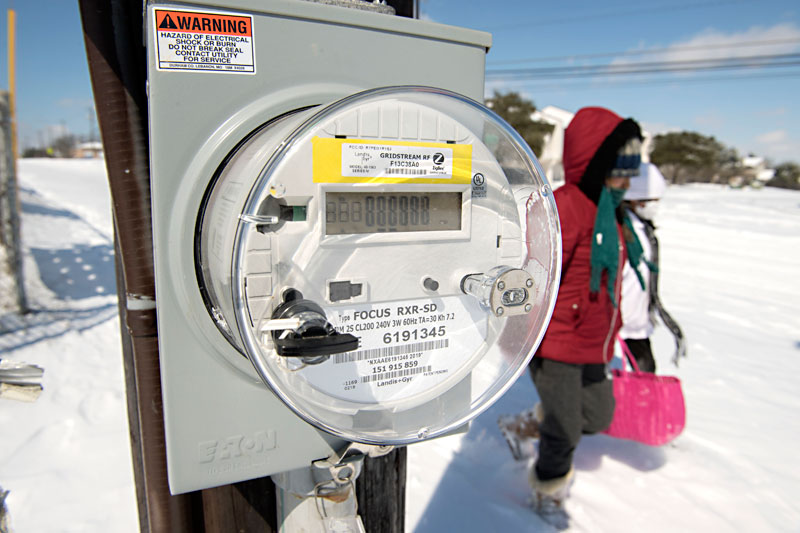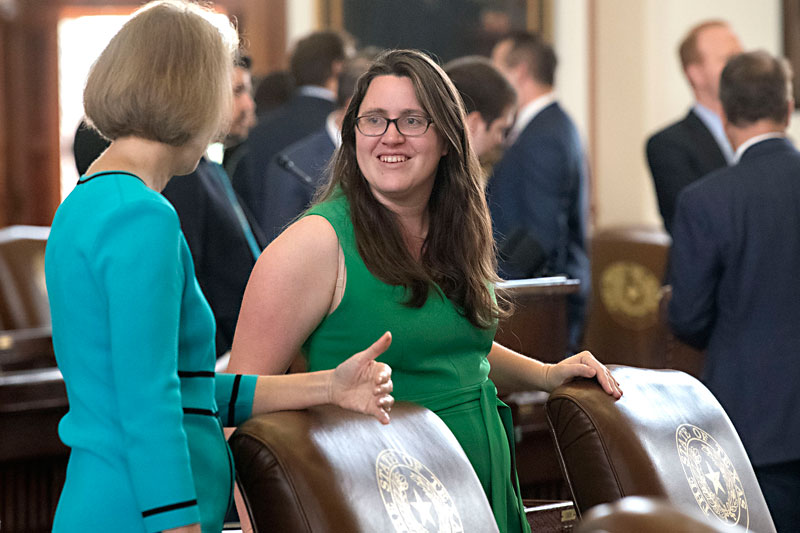Even the Winter Storm Disaster Couldn't Budge the Texas Lege on Climate Change
Maybe when hell freezes over?
By Lina Fisher, Fri., June 4, 2021

When the Chronicle spoke to Rep. Erin Zwiener, D-Driftwood, in January at the beginning of the 87th Texas Legislature, she was "optimistic that the body [would] openly take up climate change." Has that been the case? "Not at all. In fact, that's a huge disappointment for me this session."
Zwiener created the Caucus on Climate, Environment, and the Energy Industry in February with the sole goal of having at least one hearing on climate change legislation: "We had conversations that led us to believe that was possible. Unfortunately, it did not come to fruition. It's disappointing, especially since we all just experienced an event in February that is likely connected to global climate change."
After Winter Storm Uri, Zwiener's bill to authorize state grants for weatherization became a component of the omnibus Senate Bill 3 storm response package. In addition, she said, "We've had to spend a lot of time on defense, because a lot of folks have used the winter storm and subsequent power failures as an excuse to attack renewables." Most of those attempts were successfully negotiated away on SB 3 and other measures to shore up the state's tattered energy grid.
"The main environmental win" of the session, Zwiener says, is SB 900, which better regulates tank storage facilities. "I'm grateful for that win; tank storage facilities were in a bit of a regulatory gap. We saw the consequences with things like the [Intercontinental Terminals Company] fire, and the TPC [Group] explosion." (Both of these chemical plant fires – ITC in Deer Park, TPC in Port Neches – happened in 2019.) Regulatory gaps abound in the Texas Commission on Environmental Quality's enforcement apparatus, and Zwiener attempted to increase TCEQ's maximum penalties (and index them to inflation) with her House Bill 1820, which moved forward but did not get a floor vote.
"I'm very proud of having moved it out of committee, because that was not an easy lift," she says; the SB 1 budget bill does fund better pay for TCEQ inspectors and air quality monitoring. The agency will go through Sunset review before the 2023 session, giving the Lege an opportunity to dig into its performance, something Zwiener is "eager" to do.
Electric vehicle infrastructure, and shifting to clean transportation in general, seems to be a climate-conscious strategy that can gain ground in the Lege. While a more ambitious measure to incentivize EV production and invest in infrastructure (HB 2221 by Rep. Terry Canales, D-Edinburg) did not make it, a proposal by Rep. Ken King, R-Canadian, to provide EV charging stations in state parks (King chairs the House Culture, Recreation, and Tourism Committee) was adopted as a budget amendment. "Those are meaningful steps, but it's not nearly enough," says Zwiener. "Some things are happening whether climate change deniers like it or not. But others, we're gonna have to fight every step of the way."
Got something to say on the subject? Send a letter to the editor.









